Road to Moscow 1980 was perhaps the best opportunity for Malaysian football team to put the country on world map. It was the era where Malaysia, despite being a relatively poor country, was blessed with so many talented football heroes that the mighty South Korea wished their country had those gifted players.
But thanks to politics, the Government of Malaysia joined the United States-led boycott against the Soviet Union for the invasion of Afghanistan. If only Malaysia stood neutral and decided that politics and sports should not be mixed. But that’s fine because there will always be another Olympics Games every 4-years.
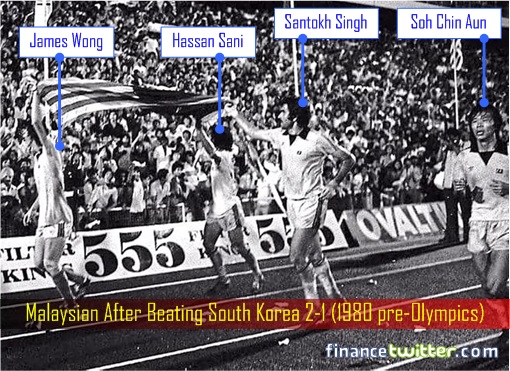
After Mahathir Mohamad took over as the fourth Prime Minister of Malaysia, he promoted industrialization, privatisation and other plans to enrich the country. Sadly, along with booming economy and prosperity, he also promoted corruption and racism, which ultimately spread its tentacles to sports and destroyed the once national football glory.
To get a flashback of how Malaysians live together harmoniously before Mahathir regime demolished it, you must go watch “Ola Bola”. Even if you couldn’t afford the RM8 promotional ticket for a morning show, you must borrow money to watch it. Of course, Ola Bola was not “based on” 1980 national team true story. But the film was “inspired” by its true event, with some minor twists here and there.
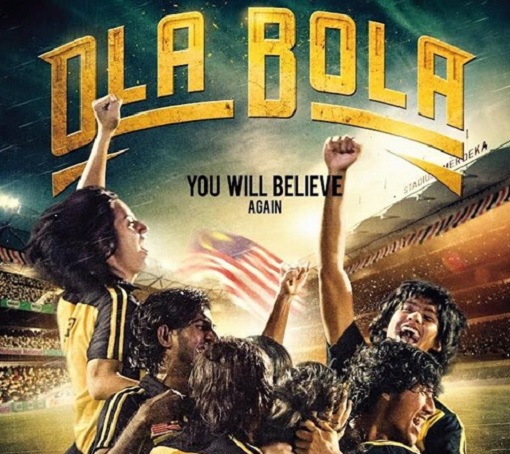
Ola Bola is not merely about the once multi-racial and multi-cultural Malaysians live happily without calling others names, but also how they cheered under one Stadium Merdeka’s roof for their national footballers playing for the glory of the country. Here’re at least 10 things you can learn from Ola Bola and what had gone wrong since then, so that hopefully it could inspire and make Malaysian football great again.
{ 1 } Local Directors Can Produce Quality Movies
Local film director, 43-year-old Chiu Keng Guan, was literally unknown prior to 2010’s “Woohoo” which netted RM4.2 million. The film, focussing on Chinese culture and family values set a new record for Chinese Malaysian films, something unthinkable previously where Hong Kong films used to dominate the local Chinese moviegoers.
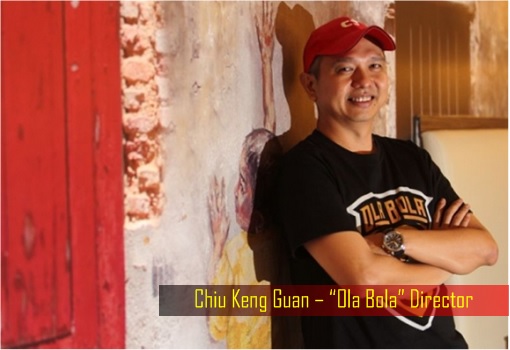
Mr. Chiu’s second film for the Chinese New Year, “Great Day”, took home RM6.5 million in 2011. His third RM3 million budget movie, “The Journey”, became the highest grossing film in Malaysia’s box office after grossing RM17.28 million in 2014, beating previous record holder “KL Gangster” (RM11.74 million). After 18-days, Chiu’s fourth film – “Ola Bola” hit RM12 million this year, and counting.
{ 2 } Dirt Poor Footballers Played World-Class Football
There’s little doubt players in the 1970s and early 1980s struggled to make ends meet. Back then, a football player needed a full-time job, either as a rubber tapper or as an office clerk to put food on the table. High paying jobs were almost non existent as Malaysian economy was predominantly mining and agricultural based, until post 1980s.
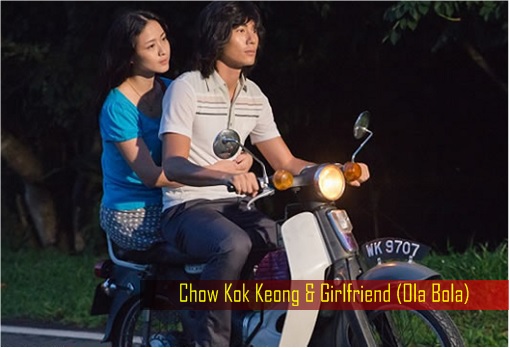
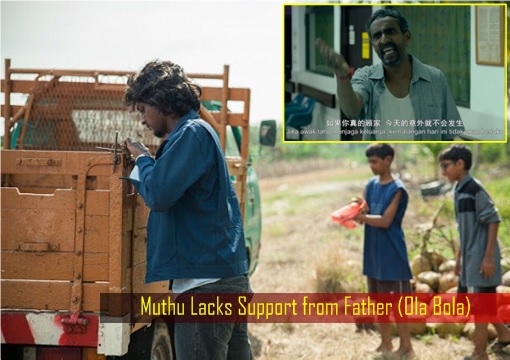
Strangely, the country produced legendary football players such as Mokhtar Dahari, Soh Chin Aun, Arumugam, Hassan Sani, Santokh Singh, Shukor Salleh, James Wong during those days. Malaysia’s 15-1 victory over the Philippines in 1962 is still the record for the highest win for the national team. Today, Palestine bashed Malaysia 6-0 while U.A.E beat the country 10-0, its biggest defeat.
{ 3 } Local Football Collapses With Industrialization
As strange as it may look, Malaysia football team qualified for the Olympics twice, 1972 in Munich and 1980 in Moscow, but hasn’t been able to repeat the same achievement since then. Coincidently, industrial sector started its spectacular growth from 1980s onwards. From 1988 to 1996, Malaysia’s economy expanded at 8%, the second fastest after China.
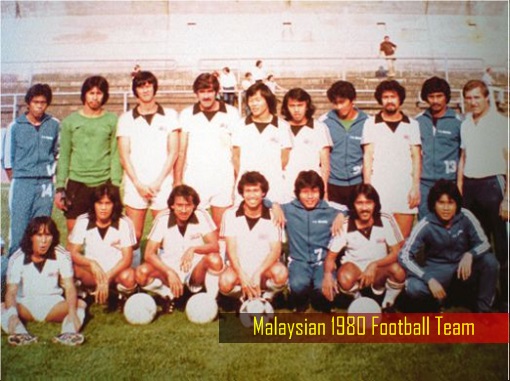
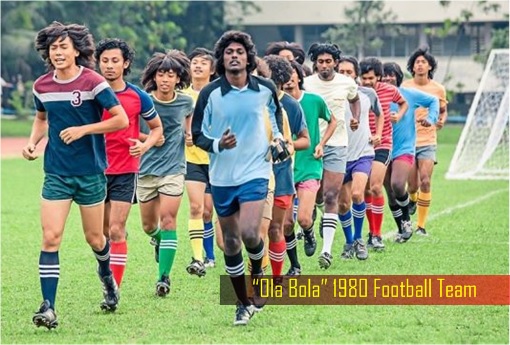
However, as the country prospered and people got richer, the reverse is true about Malaysian football performance and standard. Bribery scandals hit the sport sector and the situation got so bad that even the once Asian tiger lost tamely to Myanmar, something unimaginable during the golden age of 1970s until the 1980s.
{ 4 } Players Played With Passion For Family, Country & Flag
One glaring message from “Ola Bola” film is the purpose why past players such as Soh Chin Aun, Arumugam, Santokh Singh and Hassan Sani could display high quality, extraordinary and entertaining game. They played for the country and family but never for money. Today’s players play for money, never for family, let alone country. No money no talk!
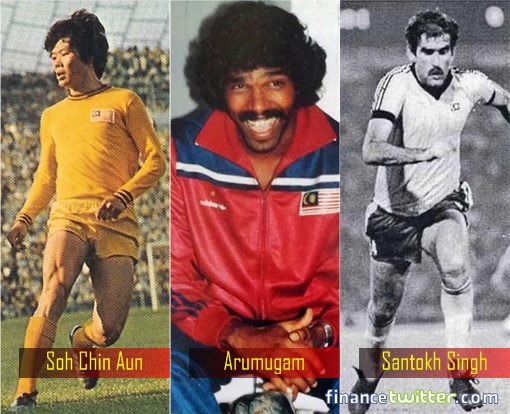
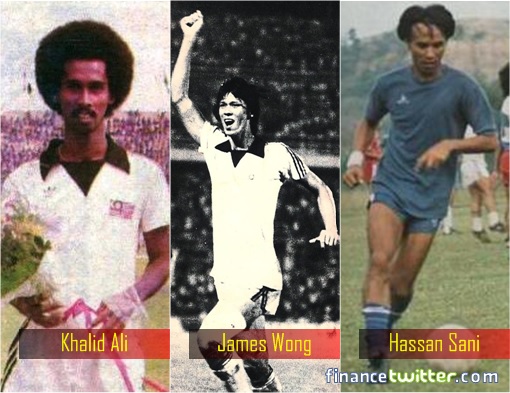
In the film, captain Chow Kwok Keong (played by JC Chee) a.k.a. “Tauke” (Boss; which was referred to Soh Chin Aun too), goalkeeper Muthu (played by Saran Kumar) and Ali (played by Luqman Hafidz) faced multiple obstacles with family, girlfriend, future, personality but eventually beat formidable South Korea with pure dedication, passion, hard work and team spirit.
{ 5 } Meritocracy Football & Harmonious Multiracial Society
Was it a pure coincidence that local football team in the 1970s and 1980s used to consists of multiracial composition? Like it or not, one cannot help but noticed that players seemed to be selected based on meritocracy and not race or religion. Chow Kwok Keong visited Rahman and bitched about new “Mat Salleh” coach Harry Mountain and had “nasi-lemak” for supper thereafter.
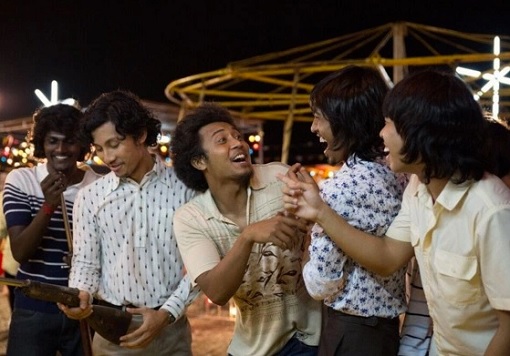
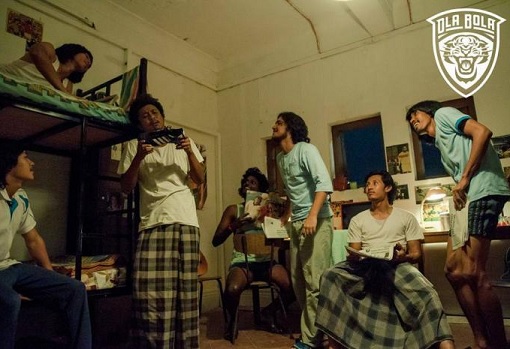
Today, it’s hard to see “true” multi-racial team players representing Harimau Malaysia, let alone multi-racial football supporters flocking to stadium in support of national team. We can argue till the cows come home but sports have been infiltrated by politicians and even monarchy that have little respect for football but political agenda and profits through mouth-watering sponsorships and annual allocation.
{ 6 } Ola Bola Unites Multi-racial Malaysians
The last time a locally produced film attracted ethnic-Chinese, ethnic-Indian and ethnic-Malay sharing the same cinema was perhaps the 1983 box office comedy “Mekanik”, long after P. Ramlee’s era. Amusingly, Malaysians require foreign Hollywood or Jackie Chan’s films to sit together for less than 2-hours throughout a movie.
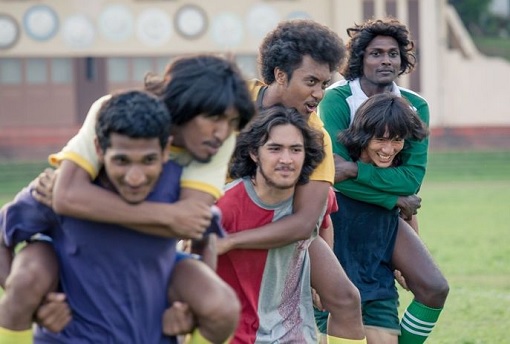
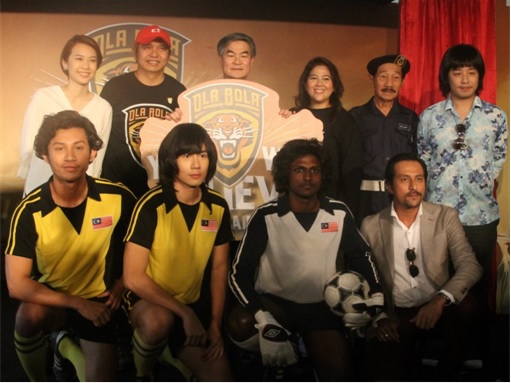
Enter Ola Bola, a rare scene where Malaysian Chinese, Malay and Indian throw away the lenses of race and religion to enjoy a local-made movie over Coke and popcorn. This proves that Malaysians can actually live happily with each other regardless of race and religion if not for scumbag politicians who promote racial and religious hatred.
{ 7 } Football Is About Skills & Teamwork, Not Branding
The Malaysian national football team today is blessed with nice jersey, branded boots, good monthly salary, fat perks and bonus, and whatnot. They can afford big car and luxury home. Still, their skills are miles away from past players who were too poor to afford such luxuries but possessed magnificent skills and determinations.
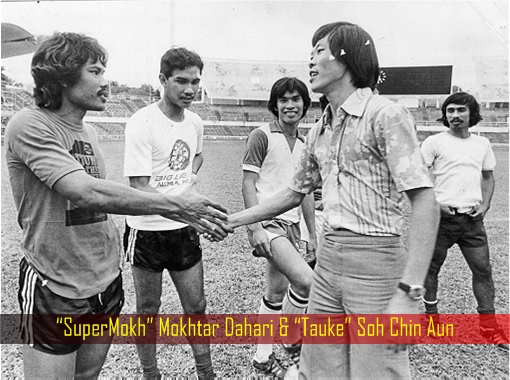
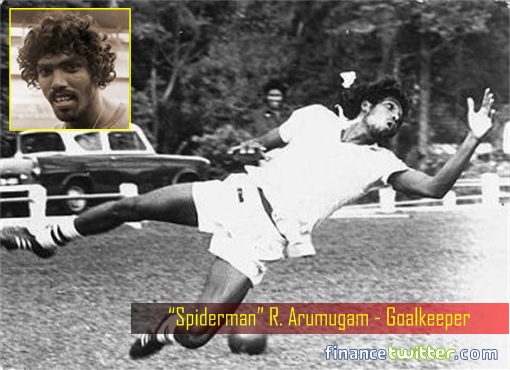
The local team has been rebranded as “Harimau Malaysia” (Malaysia Tiger) from “Harimau Malaya”. Such rebranding will do very little to boost the tumbling standard. If the likes of defence tag-team “Tauke” Soh Chin Aun-Santokh Singh, “Spiderman” goalkeeper Arumugam, and Asia best player “SuperMokh” Mokhtar Dahari could play today, Malaysia can qualify for Olympics even if the team is called “Pussy Malaya”.
{ 8 } Corruption & Racism Harm Football
Declan Hill, the Canadian journalist and academic who is also an expert on match fixing and wrote the bestseller “The Fix: Soccer and Organized Crime” has said the following about Malaysian football – “If there was a gold medal for football match fixing, Malaysia would win it.” Malaysian football has been about “match fixing” since 1994 and hasn’t stopped ever since.
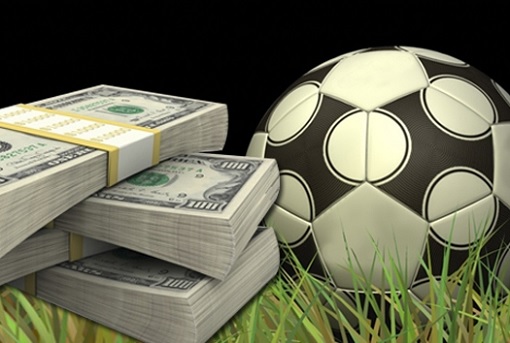
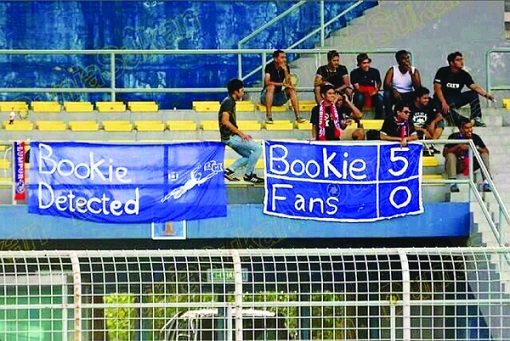
In 1994 alone, 21 players and coaches were sacked, 58 players suspended and 126 players questioned over corruption. After watching Ola Bola, PM Najib’s own brother, Nazir Razak, openly declared corruption has harmed the state of Malaysian football and, along with racism, eroded nation-building efforts. Prior to Mahathir administration mid-1980s, corruption and racism were almost unheard of.
{ 9 } Money Cannot Buy Pride, Respect & Glory
James Wong, the former national skipper who played the 1980 Olympics team said – “Unlike today where sportsmen are paid handsomely, in those days we were not paid much. Sometimes we got an allowance of RM5 or RM50. Or, there were times when we won a match and got RM100. But we played with our soul, it was not about the money.”

Also known as King James Wong, his partnership with another Sabahan – Hassan Sani – was forever deadly and scored the winning goal against South Korea to qualify for the 1980 Olympics. James added – “We didn’t have good facilities to train, but I guess, it was determination and the collaboration as a team that made us good footballers.”
{ 10 } Sports & Politics Must Be Separated
Although Malaysia qualified for the 1980 Olympics, the team didn’t make it to Moscow because the government decided to boycott in protest of Soviet Union’s invasion against Afghanistan. In reality the invasion had nothing to do with Malaysia but everything to do with United States’ war with Soviet. What would be the results if the Government of Malaysian hadn’t boycott?
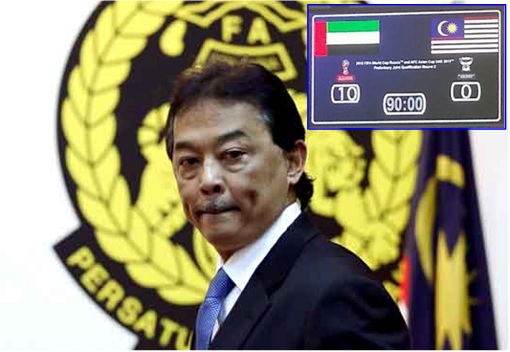
Likewise, politicians and even monarchy should not be allowed to run the management and decision-making as far as local football is concerned. At the most, monarchy’s role should be confined to funding and ceremonial. Management, coaching, accounting, recruiting should be left to the specialists. Hardcore politicians and extremists should be banned altogether.
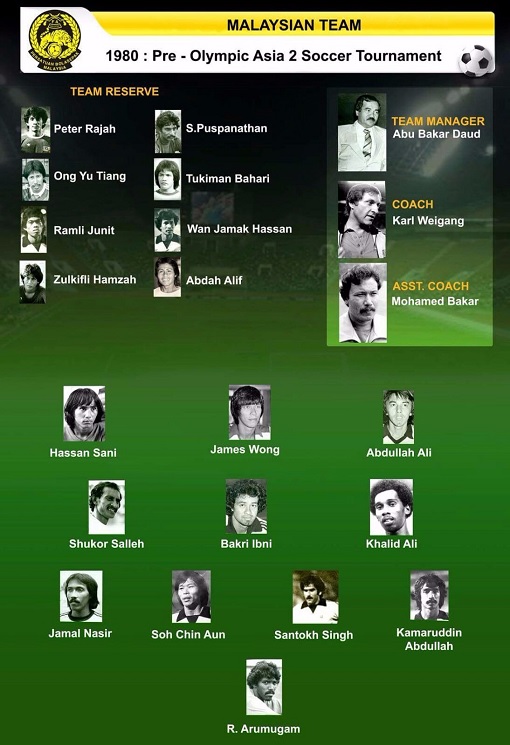
Other Articles That May Interest You …
- From Football Star To Hotel Tycoon – Cristiano Ronaldo Diversifies
- Iran The Cheater – Women’s Football Team Are Mostly MEN
- Shameful!! Saudi “Donated” RM2.6 Billion And This Is How Malaysia Repay Them?
- 2 Filipino Divers Spectacularly Score ZERO – The Secret To Get Funding?
- FIFA Crackdown – World Cup Of Corruption Operates Like Big Mafia Families
- Messi Besting Ronaldo, But The Rivaly Continues – From Money To Goals
- Badminton Scandal – Was Lee Chong Wei His Own Worst Enemy?
- Get Back Those Childhood Memories With Raleigh Chopper 2015 Special Edition
- Meet Sabina Altynbekova, The VolleyBall Babe Whose Beauty Attracts Crazy Fans (Photo)
- Brazil Humiliated 1-7 By The Germans. Blame Najib, Again (Photo)

|
|
February 16th, 2016 by financetwitter
|


|

|

|

|

|

|




























Comments
Add your comment now.
Leave a Reply